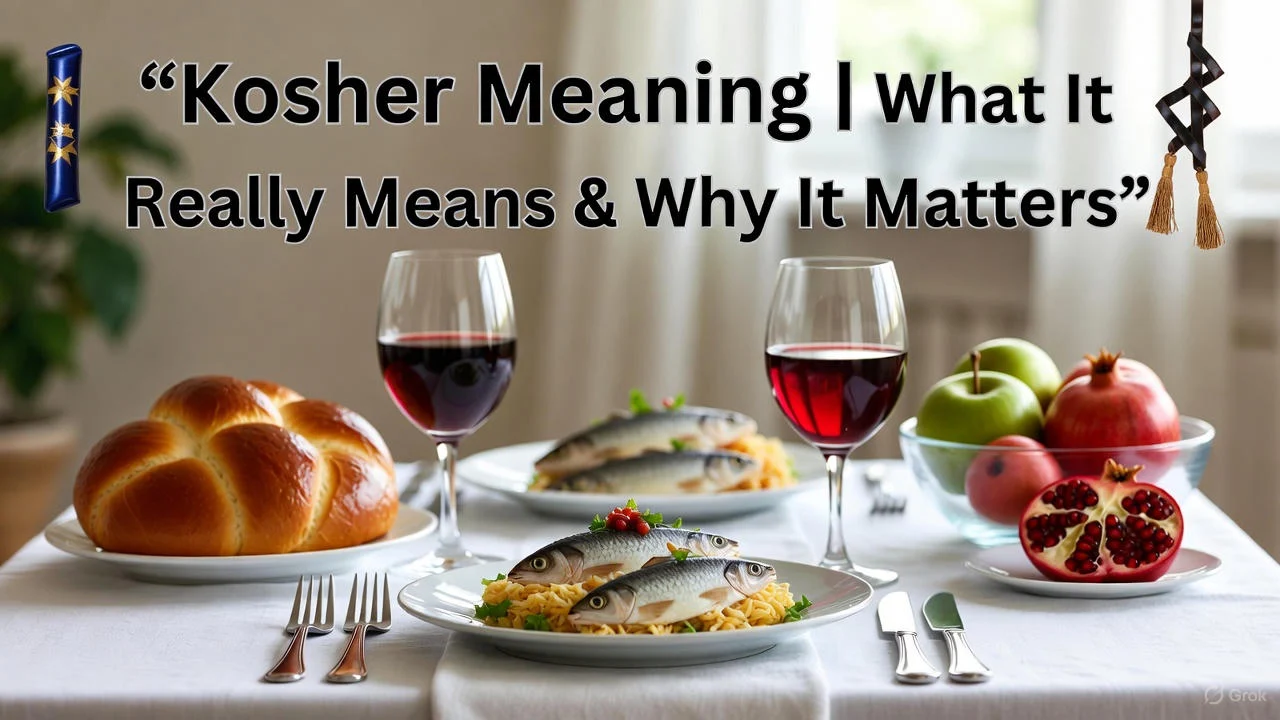Ever heard someone say, “Is this kosher?” and wondered what they meant? 🤔
You’re not alone — this word pops up in everything from food labels and business ethics to slang conversations meaning “legit” or “fair.”
But what does kosher really mean?
👉 In simple terms, “Kosher” means “fit” or “proper” under Jewish law — especially when it comes to food preparation. Yet, over time, the word has taken on broader meanings in English, symbolizing trust, authenticity, and fairness.
In this guide, we’ll unpack the origins, cultural depth, and modern uses of “kosher,” showing how a sacred term became part of everyday language — and why it still matters today.
🧠 Definition & Meaning
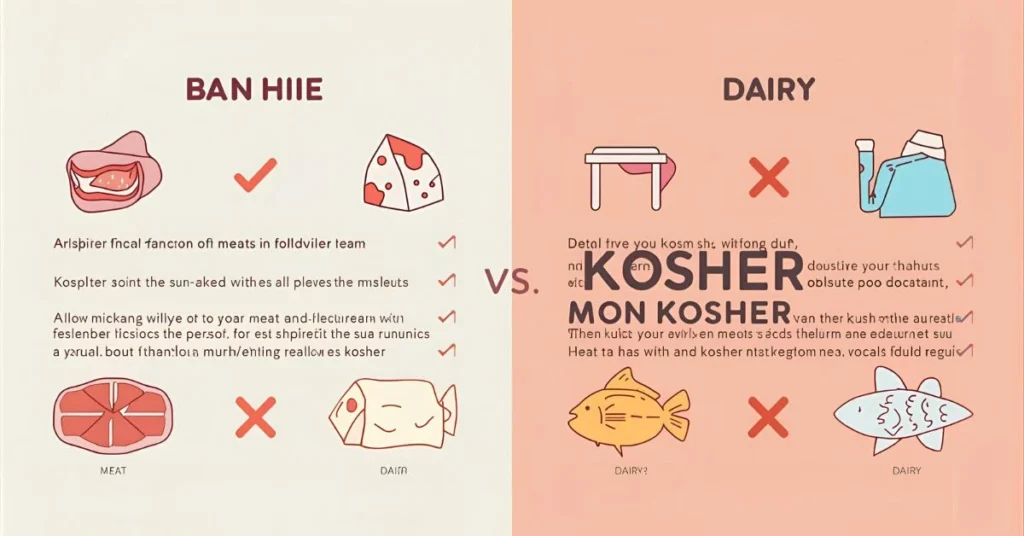
Kosher (from the Hebrew “כָּשֵׁר,” pronounced kah-sher) literally means “fit” or “appropriate.”
In Judaism, food is considered kosher when it follows the dietary laws known as Kashrut, which detail what can be eaten and how it must be prepared.
✅ Quick Definition Table
| Context | Meaning | Example |
|---|---|---|
| Religious (Jewish law) | Food that meets Kashrut standards | “This restaurant serves kosher-certified meals.” |
| Slang / Informal | Honest, fair, or legitimate | “Don’t worry, the deal is totally kosher.” |
| Cultural | Morally acceptable or genuine | “That behavior doesn’t seem kosher to me.” |
📜 Background & History

The term kosher traces back to ancient Hebrew scriptures, describing items that were clean, fit, or lawful.
As Jewish communities spread globally, Kashrut became a defining element of identity — regulating which animals can be eaten, how meat and dairy must be separated, and the spiritual intention behind food preparation.
By the 20th century, kosher certification symbols (like OU, K, and Star-K) became trusted signs on food packaging worldwide.
Today, kosher food isn’t only eaten by Jewish people — it’s often chosen for its purity, safety, and ethical standards.
And in modern English, “kosher” evolved beyond food, becoming slang for something authentic, transparent, or right.
💬 Usage in Various Contexts
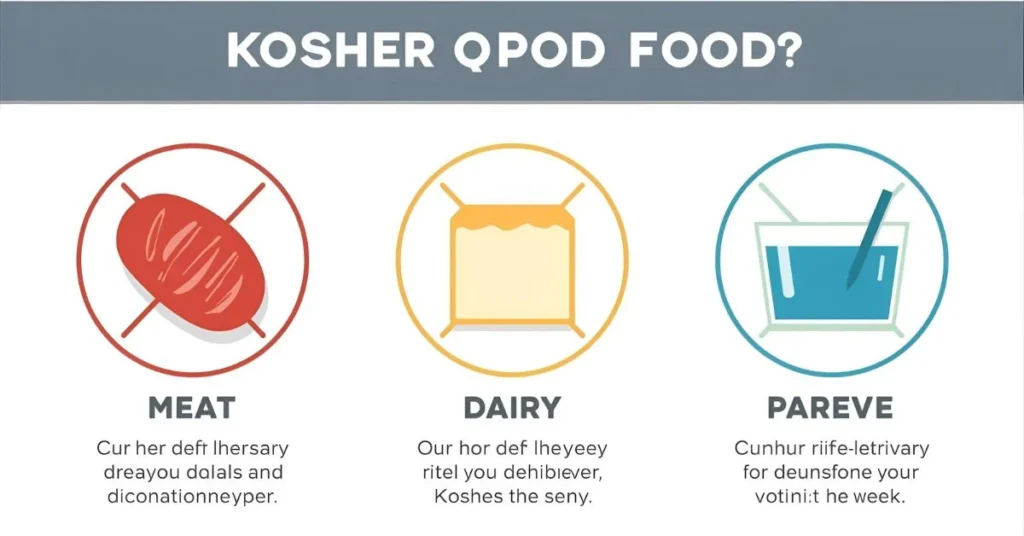
Here’s how the term “kosher” appears in real-world conversations 👇
In Food & Religion:
A: “Is this cheese kosher?”
B: “No, it wasn’t made under certified conditions.”
In Everyday Slang:
A: “This deal feels off. Are you sure it’s kosher?”
B: “Yeah, everything’s legit.”
In Work or Ethics:
“Our business practices are completely kosher — nothing shady here.”
✅ Whether literal or slang, “kosher” always ties back to the idea of rightness and integrity.
🧩 Common Misconceptions & Clarifications
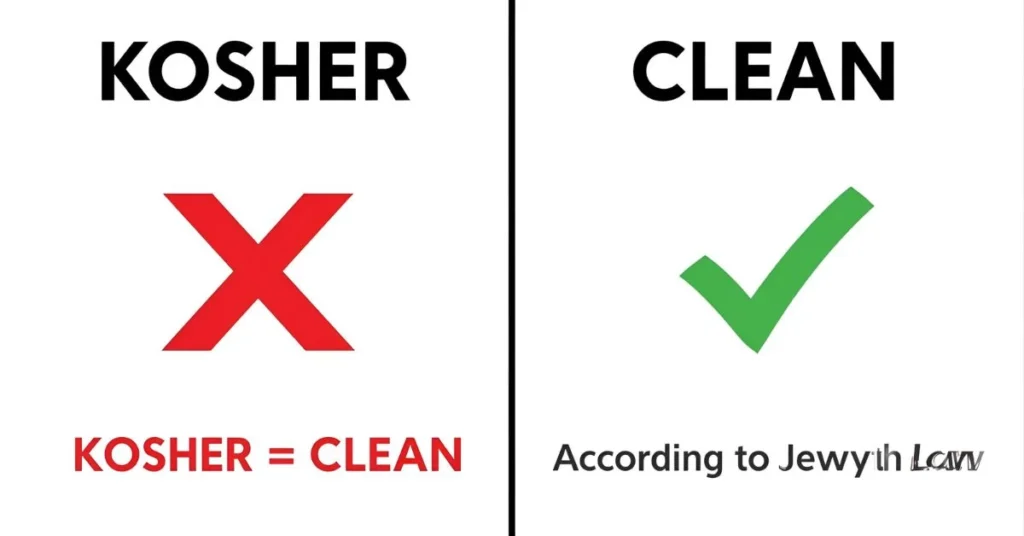
| Myth | Reality |
|---|---|
| Kosher = Jewish-only food | Kosher food is eaten globally for quality and ethical reasons. |
| Kosher means healthy | It’s about religious standards, not nutrition. |
| All kosher food is blessed by a Rabbi | Rabbis supervise certification, not bless the food. |
| Kosher = Halal | Both follow religious dietary laws but differ in origin and details. |
Pro Tip: Kosher is about spiritual discipline and purity, not just food rules.
🔤 Similar Terms & Alternatives
| Term | Origin | Meaning |
|---|---|---|
| Halal | Arabic | Permissible under Islamic law |
| Legit | English slang | Genuine or trustworthy |
| Clean | Modern slang | Pure, ethical, or safe |
| Certified | Professional jargon | Officially approved or verified |
Each of these shares kosher’s essence — something that’s right, safe, or fair.
🍽️ Kosher Certification Symbols
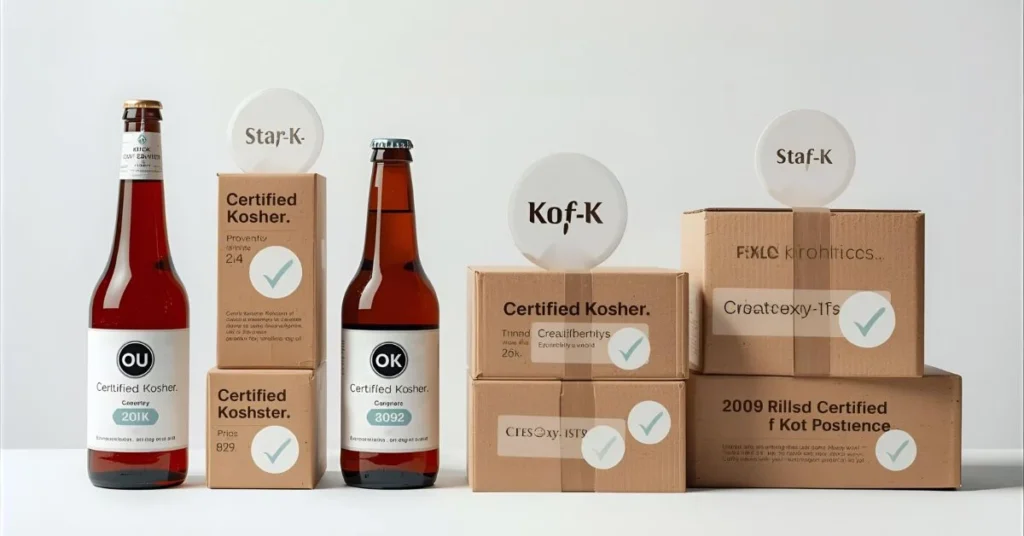
If you’ve ever spotted symbols like OU, K, or Star-K on packaging, those mark kosher-certified products.
Each symbol represents a different certification agency ensuring compliance with Kashrut laws.
Fun Fact: Over 40% of packaged foods in the U.S. now carry some form of kosher certification — proving how trusted the label has become.
🌎 Regional or Cultural Differences
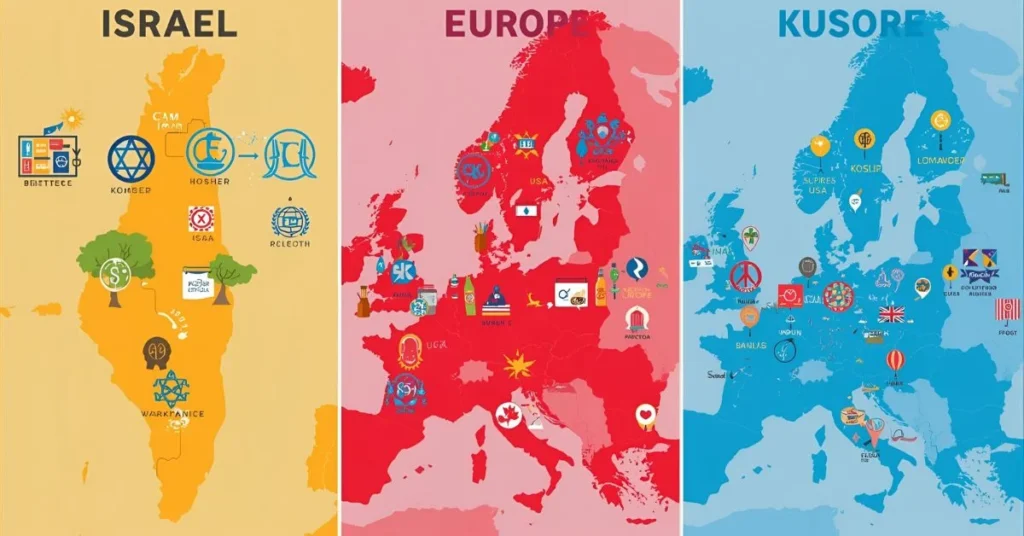
- Israel & Jewish Communities: Deeply religious meaning — tied to faith and identity.
- United States: Widespread in both food marketing and slang.
- UK & Europe: Often used metaphorically — “kosher deal” or “kosher business.”
- Online Culture: Used casually to mean “authentic,” “clean,” or “ethical.”
So, “kosher” adapts beautifully — blending sacred tradition with global language.
⚖️ Suitability for Professional Communication

In professional or corporate writing, “kosher” can sound informal. Instead, use:
- “Legitimate”
- “Ethical”
- “Proper”
- “Authentic”
However, in casual or creative contexts, it’s perfectly fine — “Everything’s kosher” gives a confident, friendly vibe.
❓ FAQs
1. What does kosher mean in simple words?
→ It means “fit” or “proper,” especially according to Jewish dietary law.
2. What makes food kosher?
→ It follows Kashrut rules — including specific animals, preparation methods, and separation of dairy and meat.
3. What does kosher mean in slang?
→ It means legitimate, fair, or aboveboard.
4. Is kosher the same as halal?
→ No. Both are faith-based diets, but with different religious laws.
5. Why is kosher popular worldwide?
→ It’s seen as clean, safe, and ethically prepared — even outside religious circles.
🌺 Conclusion
Kosher is more than a word — it’s a bridge between faith, culture, and integrity.
From ancient scripture to modern slang, it continues to represent honesty, purity, and fairness.
So if you’re checking food labels or describing a trustworthy deal — when you say something’s kosher, you’re really saying:
👉 It’s right, pure, and truly authentic. ✨

